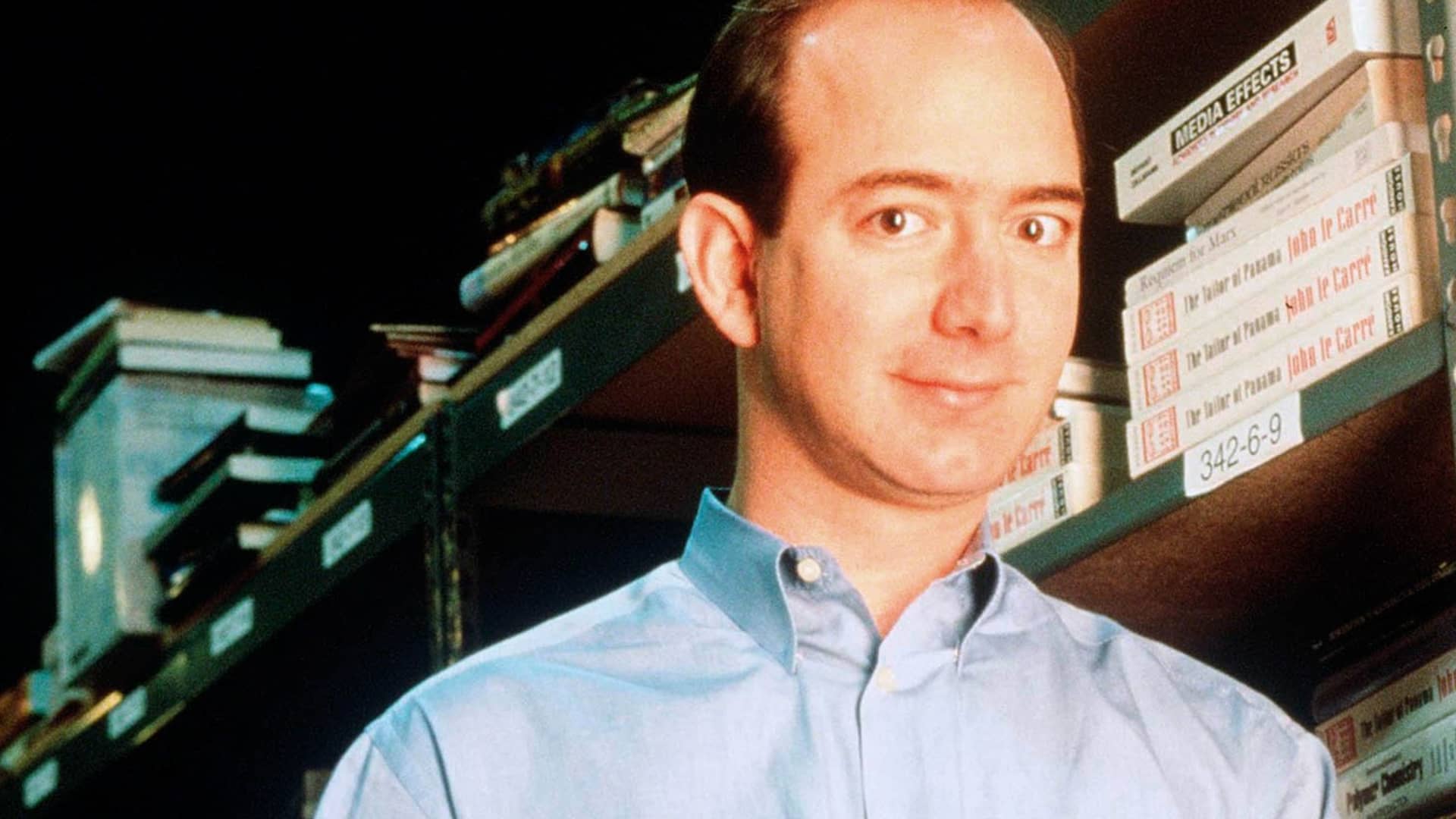Products You May Like
Amazon might be a $1.5 trillion “everything store” today. In the beginning, it was just books — and Jeff Bezos had a reason for that hyper-specificity.
Bezos explained why he chose to only sell books on his website — at least, at first — in a “lost” video interview recorded at a Special Libraries Association conference in June 1997, which resurfaced in 2019 when it was posted online by entrepreneur Brian Roemmele.
Out of all the different products you might be able to sell online, books offered an “incredibly unusual benefit” that set them apart, Bezos said.
“There are more items in the book category than there are items in any other category, by far,” said Bezos. “Music is No. 2 — there are about 200,000 active music CDs at any given time. But in the book space, there are over 3 million different books worldwide active in print at any given time across all languages, [and] more than 1.5 million in English alone.”
When Bezos launched Amazon in 1994, the internet and e-commerce industry were still in their earliest stages. He knew it would take some time before online shopping became ubiquitous, he said, so he wanted to start with a concept that couldn’t be replicated by a seller with only physical locations.
“When you have that many items, you can literally build a store online that couldn’t exist any other way,” he explained. “That’s important right now, because the web is still an infant technology. Basically, right now, if you can do things using a more traditional method, you probably should do them using the traditional method.”
Still, Bezos hinted at the company’s potential for expansion, noting that “we’re moving forward in so many different areas.”
“This is Day 1,” he added. “This is the very beginning. This is the Kittyhawk stage of electronic commerce.”
‘This is the very beginning’ — parallels between the internet and AI
Bezos’ comments during the internet’s infancy echo the way tech leaders today talk about artificial intelligence. That includes the Amazon founder himself, who’s currently backing a $520 million AI-powered internet search startup that aims to take on tech giants like Google.
“We’re at the beginning of a golden age of AI,” Bezos said in a 2019 statement. “Recent advancements have already led to invention that previously lived in the realm of science fiction — and we’ve only scratched the surface of what’s possible.”
Much like in the internet’s early days, there’s no set roadmap for AI’s future development — only a combination of optimism and cautiousness from many tech luminaries.
Bill Gates has compared AI to nuclear energy, for example — calling both technologies “promising and dangerous” in a 2019 speech. More recently, OpenAI CEO Sam Altman’s dramatic departure and return to his company last year reportedly stemmed from boardroom concerns over profit-chasing at the expense of AI safety.
Even Bezos, who’s decidedly pro-AI, acknowledges its potential dangers. Still, he believes it’ll help humanity build “better medicines and better tools to develop more technologies,” he told podcaster Lex Fridman in December.
“Even in the face of all this uncertainty, my own view is that these powerful tools are much more likely to help us and save us, even, than they are to, on balance, hurt us and destroy us,” Bezos said.
Want to land your dream job in 2024? Take CNBC’s new online course How to Ace Your Job Interview to learn what hiring managers are really looking for, body language techniques, what to say and not to say, and the best way to talk about pay. Get started today and save 50% with discount code EARLYBIRD.
